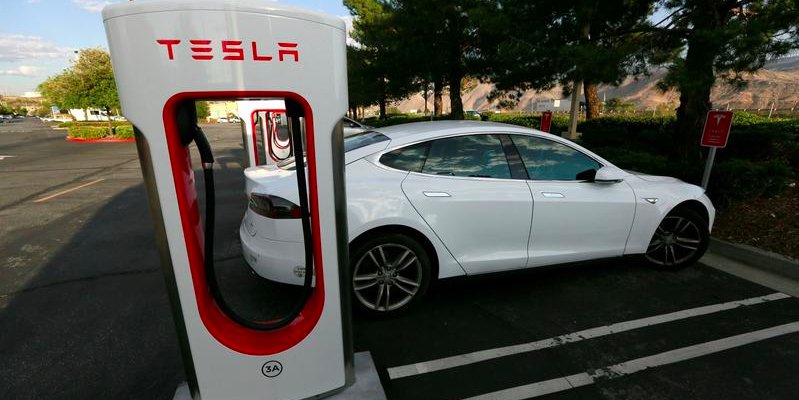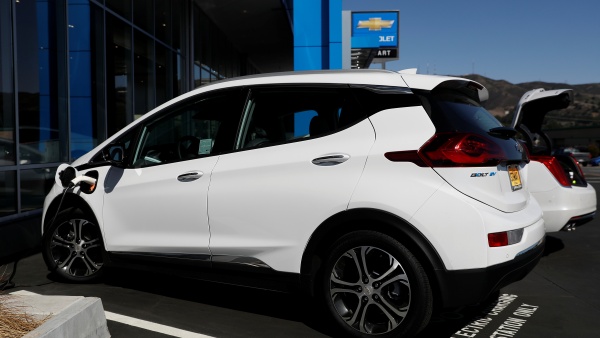
The future of transportation will be electric vehicles (EV). As battery costs come down and countries turn away from internal combustion engine vehicles, the most aggressive outlooks see EVs making up one-third of the global car fleet by 2040.
Given the pressing need to decarbonize the global transportation sector, this seems like positive news. However, China, the emerging market leader, would stifle innovation if given the chance to dominate. Without competition from inventive American firms, the impending EV revolution would be one that slows the industry and speeds climate change in the long run.
If Chinese innovation in the EV market is at all similar to its role in the solar panel industry, the world will only see “good enough” innovation; because there is no competition or pressing problem to stimulate technological breakthroughs, China will settle for minimum advances in EVs.
For the past decade, China has identified new energy vehicles (NEVs), which includes electric vehicles, as a strategic and emerging industry, unlocking strong financial and political support from top leadership. Recent trends have demonstrated Beijing will not shy away from using the law to force non-defense related companies to transfer technology or store their data on Chinese servers.
In 2013, Kawasaki, a Japanese company, found itself competing against its own designs abroad when CSR Sifang, its former partner in China, used transferred technology to export Japanese-designed high-speed rails to new markets in Europe.
For foreign automakers to do business in China, they must have a joint venture with a domestic company as majority owner. The Chinese government also requires automakers to incorporate NEV technologies in their electric vehicles if they have them.
Due to these stringent requirements, foreign companies end up forfeiting their intellectual property to Chinese competitors they are forced to work with, boosting domestic Chinese industry and harming their own bottom lines in the long run.
Despite this, foreign companies have quickly realized that China is the hottest market for EVs and are still willing to compete there at any cost. Ford, the quintessential American automaker, is exploring developing its new line of electric cars in China, which would then be exported to America.

A Chevrolet Bolt electric vehicle is seen at Stewart Chevrolet in Colma, California.
Through leveraging its market size and government-directed economy, China is looking to lead the EV market. By poaching critical technologies and forcing joint ventures, China has leapfrogged to become the world’s second-largest producer in a fraction of the time it took foreign competitors to develop their products.
The bad news is this situation will only result in incremental improvements that will not ultimately benefit the environment. Chinese companies are widely known for dumping products to create monopolies and bankrupt competitors, creating an uncompetitive environment in which China could fashion itself as a leader with little merit.
While this practice is unproductive across the board, it could be truly damaging in the energy sector. Imagine a world where leading companies only improve marginally on cost and performance. Incremental progress will not sufficiently combat climate change.
The U.S. needs to expand funding for research and development of new, innovative vehicle technologies, as government support is crucial to the commercialization of EVs and nearly all energy technologies, often defraying the upfront cost before mass-market viability.
The Trump administration has correctly identified the danger that America’s unbalanced trade relationship with China poses to national security and should fight for fair market access for automakers in China. Even under unfair conditions, the U.S. still managed to export $8.9 billion worth of cars in 2016, indicating latent Chinese demand.
Congress and the administration should work together to codify and fund the next generation of infrastructure needs, pouring financial support behind charging stations around the country to incentivize domestic EV sales.
The U.S. has sustained economic growth through promoting fair and open markets, prioritizing R&D, and investing in national infrastructure. U.S. policymakers should now lead the transformation of America’s transportation sector, lest they leave the next generation in the Beijing’s hands.
Ashley Feng is a research associate for China Studies at the Council on Foreign Relations. Sagatom Saha is a Fulbright researcher studying energy reform.
From Asia Unbound, CFR
This piece originally appeared in Fortune.
The 21st Century
